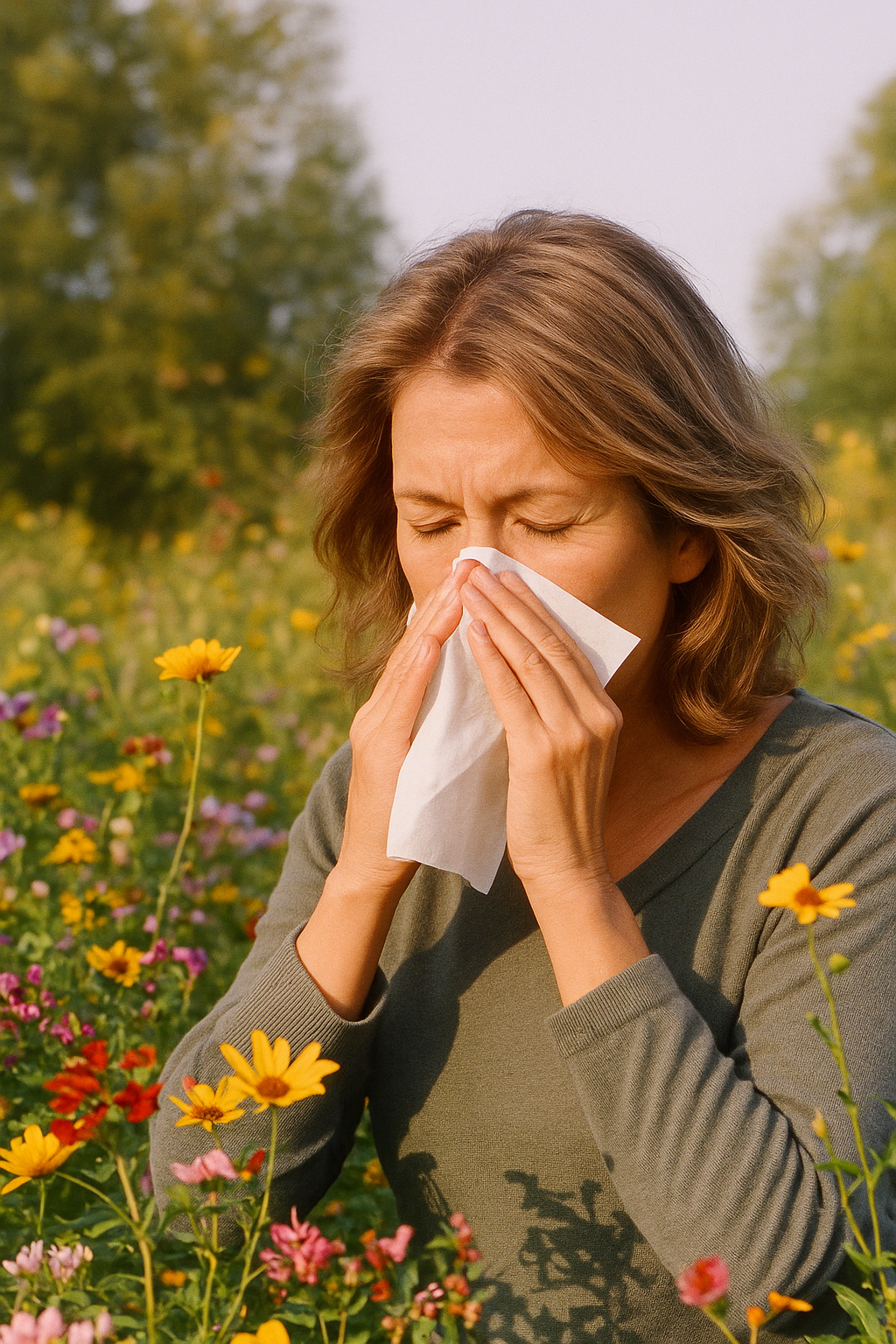It Might not be Hayfever this Spring - the Hidden link between Histamine and Perimenopause
As spring arrives and the weather warms, you might find yourself reaching for antihistamines to combat itchy eyes, a stuffy nose, or unexpected skin flare-ups. It's easy to blame seasonal allergies, but there could be something else going on — and it's connected to your changing hormones.
Understanding Histamine Intolerance
Histamine is a natural chemical your body produces to support digestion, immune function, and brain signaling. Under normal circumstances, your body efficiently breaks down histamine using enzymes called DAO (diamine oxidase) and HNMT (histamine N-methyltransferase).
However, when these enzymes can't keep pace — whether due to hormonal shifts, stress, gut imbalances, or dietary factors — histamine can accumulate in your system. This buildup may trigger symptoms like a runny nose, headaches, hives, mood changes similar to PMS, bloating, and sleep disturbances.
How Perimenopause Changes the Picture
During perimenopause, your oestrogen levels begin to fluctuate, and here's where things get interesting: oestrogen stimulates your body to release histamine, while histamine encourages oestrogen production. This creates a cycle that can leave you feeling inflamed, anxious, itchy, or exhausted despite feeling wired.
Making matters more challenging, progesterone — which acts as a natural antihistamine — declines during this phase. Without that balancing effect, many women in their 40s suddenly develop what seem like new allergies, along with increased PMS symptoms, heightened anxiety, or disrupted sleep patterns. These are all potential signs of histamine imbalance.
Lifestyle Factors That Can Tip the Scale
Certain foods and daily habits can push your histamine levels over the edge, including aged cheese, wine, chocolate, fermented foods, processed meats, and leftovers. Other contributing factors include gut inflammation or SIBO, chronic stress, poor sleep quality, and excessive exercise.
Supporting Your Body's Histamine Balance Naturally
You don't need to eliminate histamine entirely — it's vital for your health. Instead, focus on supporting your body's natural ability to process it effectively:
Choose fresh, whole foods whenever possible
Support your gut health try a low-histamine diet & probiotic strains
Ensure adequate intake of nutrients that support DAO function, including vitamin C, B6, and balanced zinc and copper
Include natural antihistamine foods in your diet, such as apples, onions, and green tea
Balance your hormones through stress management and liver support
Worth Considering
If your spring allergies seem more intense lately, or if antihistamines aren't providing the relief they once did, it might be time to look beyond pollen. Histamine intolerance, particularly when amplified by perimenopausal hormonal changes, could be the underlying cause.
The good news? With thoughtful dietary choices, lifestyle adjustments, and naturopathic support, you can help your body restore balance naturally. Sometimes what feels like worsening allergies is actually your body asking for a different kind of support.
Ready to Find Your Balance?
If this sounds familiar and you're ready to address the root cause of your symptoms, I'd love to support you. Book a complimentary no obligation Discovery Call to discuss how my naturopathic services can help, or learn more about my 14-week Body Harmony Program — a comprehensive approach designed to help you restore hormonal balance, losestubborn weight gain and feel like yourself again. Head to the ‘Book Online’ button on my home page to book your call.


